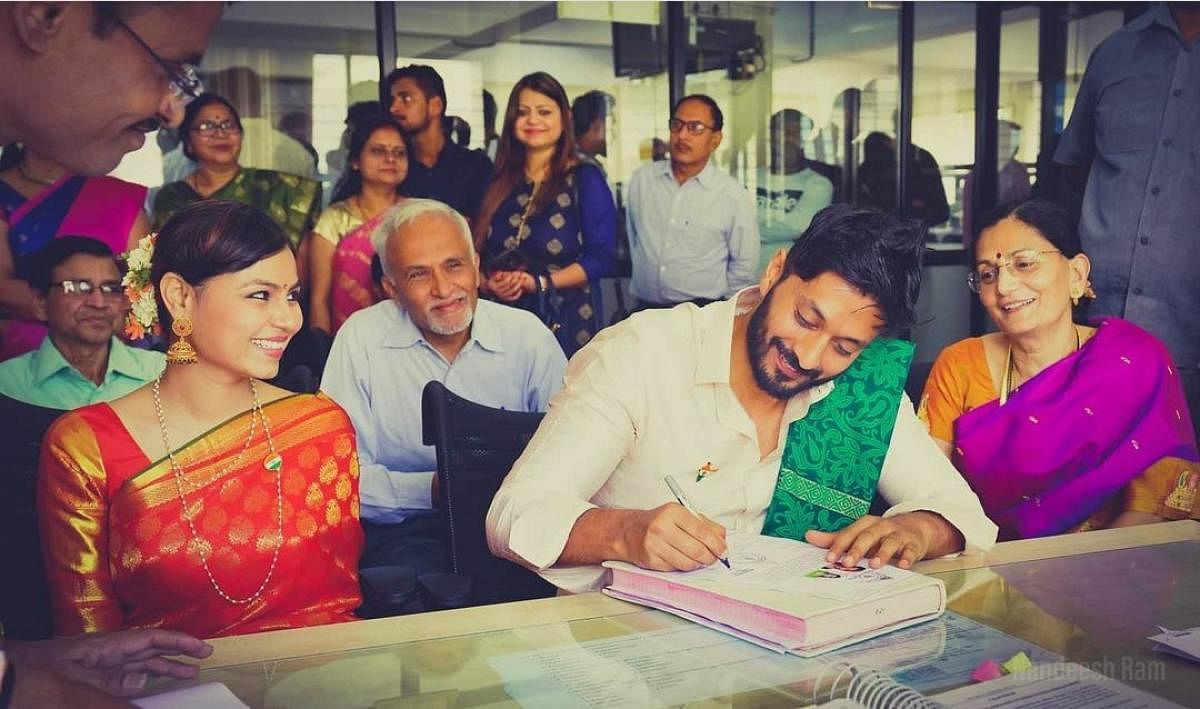
Yes, I am an untouchable, and every negro in the United States of America is an untouchable.
– Martin Luther King, Jr.
Jyotiba Phule and Babasaheb Ambedkar in India and Martin Luther King Jr. and Web Du Bois in the US are nation-builders who drew parallels between caste and race struggles. Let me connect my personal experiences with racism in the US with the ongoing movements against casteism in Karnataka and across India.
Growing up in Chicago for the first 20 years of my life, I was a victim of racism on several fronts, and faced direct violent attacks and school administrative discrimination. Even as a 15 year-old, I was called ‘anti-American’ and ‘anti-national’ because of my anti-racism thoughts.
My experiences as an American person of colour are no different from those of other non-whites of my generation. My four years at Yale University, an educational institution that to its best ability fostered an environment of human dignity and intellectual discourse, were different, and I faced no discrimination there.
Yet, the conversations I had with intelligent, conscientious white students on the campus remain etched in my mind. Most would deny the very existence of racism — institutional or otherwise — in America even in the post-9/11 era when people of colour — Mexicans, Middle Easterners and South Asians---were being attacked and killed and put in jail by a hyper-prejudiced government using its Patriot Act.
As a hybrid identity who studied the dynamics of South Asian socio-economic and cultural frameworks, I began to understand that although I faced racial discrimination in the US, I was also the beneficiary of the caste system back in India. My parents, both doctors, had emigrated from India a decade before my birth. They had become professionals only because of generations of educational access.
Why were all the Indian-Americans I studied with hailing from upper-caste and dominant caste backgrounds? Why weren’t students from Dalit and Adivasi backgrounds studying with me at Yale? Was caste discrimination still prevalent in India while privileged society denied its existence, just as whites denied racism in America?
Even as a youngster, I held that equality, justice and rationality should be the ideological building blocks of any society. In 2005, I came to Karnataka to work with grassroots groups, and began to see the glaring social and caste differences here. For nearly a decade, I have been active on Karnataka’s Dalit platforms, fighting alongside anti-caste and Bahujan leaders for an equitable society.
The denial or lack of recognition of caste as a socio-economic-educational debilitating factor amounts to a perpetuation of the system. We must acknowledge and remove the 3,500-year-old scourge that has caused inequality on various levels.
Dehumanising ideas of ‘paapa/punya’ built on a graded hierarchy with the priestly classes on top and Dalits at the bottom must be challenged and eradicated. Statistics show that 95 per cent of marriages to this day are intra-caste and intra-religion. We must promote marriages across castes and religions both for ‘love’ and arranged matches. Progressive thinkers like Kuvempu, Periyar, and Rammanohar Lohia encouraged simple marriages without caste intermediaries.
We must fight for caste-based reservations in the private sector in accordance with the Sarojini Mahishi report. Representation on regional, caste, class, and gender lines must determine staffing in the private sector, especially in the A and B segments. We must also join hands with grassroots movements. The Devadasi struggle across Karnataka and the Koraga movement in our coastal districts deserve our support.
In the long run, land rights, agrarian reforms, and economic empowerment for all Kannadigas must be brought to the foreground. Although public attitudes may take long to change, we must spearhead changes in accordance with the Constitution.
Only those who fight in anti-caste movements are truly upholding the ‘idea of India’ that Ambedkar and Bahujan icons pioneered for us. As we think, act, and mobilise in Karnataka, we must simultaneously continue our global struggle for an egalitarian world.
(The author is an actor and activist)
Video wars
Last week, actors Chetan and Upendra were locked in a shadow battle after the latter said it was best not to talk about caste. Upendra believes discussing caste only strengthens the practice. Chetan countered his senior by saying corruption wouldn’t go away if people closed their eyes and refused to talk about it.
Offended, says board
Sachidananda Murthy, chairman of the government's Brahmin Development Board, is seeking police action against Chetan for talking against Brahminism. He says the actor ‘insulted the sentiments of the community’.
Murthy had filed a complaint on June 7. Police at the Ulsoor Gate Station has lodged an FIR against the actor.
Shivaram Hebbar, labour minister, condemned Chetan's comments on Twitter. He requested chief minister BS Yediyurappa to take action against the actor.